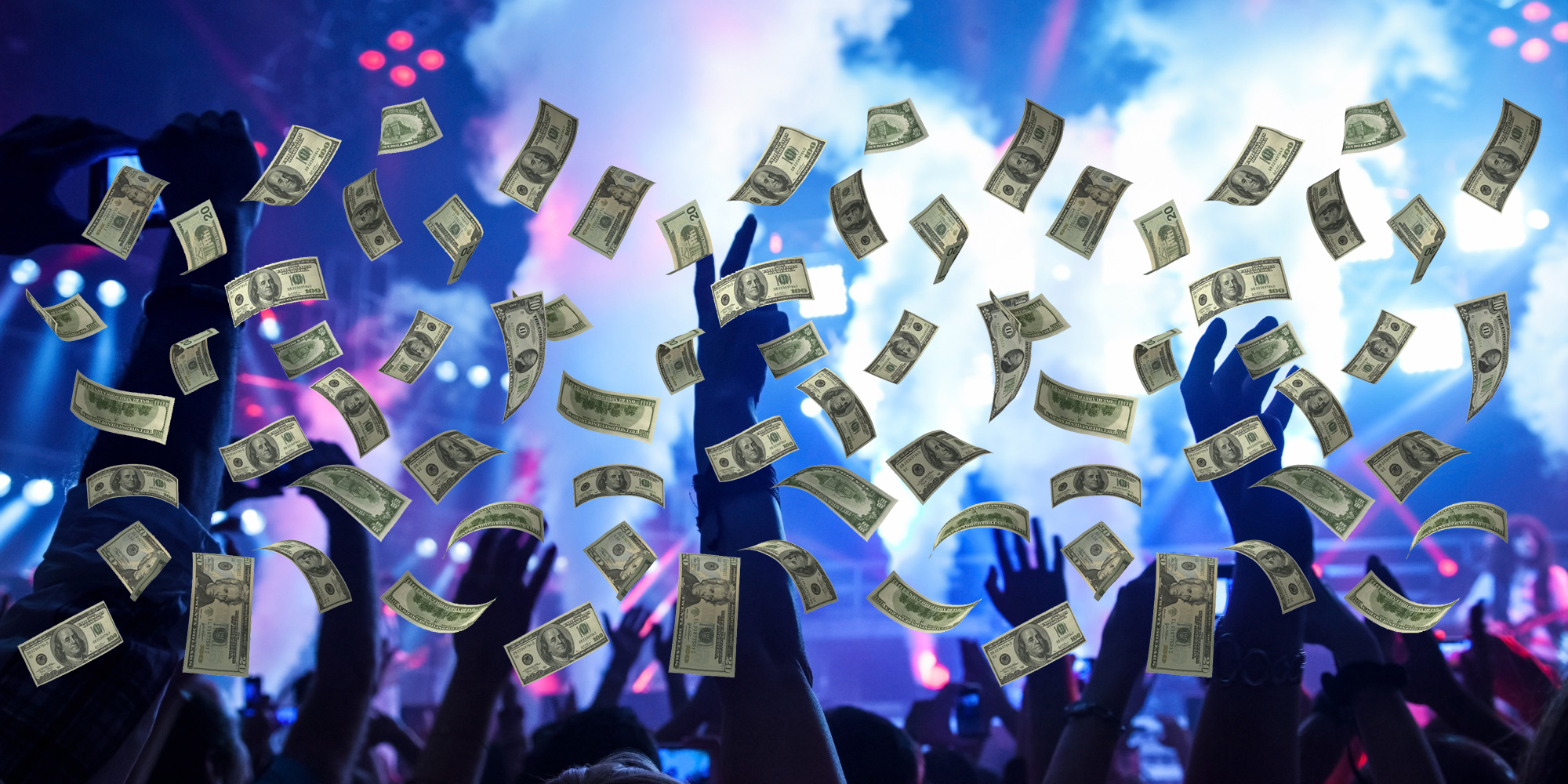Perhaps many didn’t estimate 2020 to turn out this way. 2019 had given an insight into how the Electronic Dance Music industry could be in the next one year. An increase in festivals, more streaming income, and also a surge in revenue for the DJs.
Everyone was gassed up. DJs had been booked 3-6 months even before the usual summer festivals, fans had paid for the concerts they wanted to go for and event organizers had it all planned out.
One thing that was remaining was time.
As it would later turn out, the pandemic halted plans. It crashed things for a few. It altered permutations. Permutations on earnings, revenues, and dreams for the fans.
Coachella had to be postponed, the hordes of Ibiza festivals that had been planned were scratched off and ideas were being re-engineered, backwards.
Impact Of The Pandemic
Before the pandemic, it had been estimated that the Global Dance Music Industry could go past its $1.1 billion earnings it made in 2019. However, the pandemic has made this outlook worrisome. The annual IMS Business report revealed there might be a drop in Electronic DJ and artists’ income from the $1.1 billion it earned in 2019 to $0.4 billion in 2020.
This sudden negative impact is due to the fact that over 350 electronic festivals have been canceled or postponed. From the summer festivals in Ibiza to the much-populated concerts – Tomorrowland, Glastonbury, Coachella, Roskilde, Mawazine, event organizers are having to return money to people who had bought tickets to these concerts.
These cancellations not only hurt the fans or artists – who’ve had their primary source of income extinguisher because of the pandemic, but it also affects the promoters and everyone involved in making these events a success.
New York-based DJ Manager, Max Leader shared this view when he was interviewed on the Grammy’s website. He said, “These promoters, some of them are monthly promoters, and they try to honor deals. Now you lose one show for artists of the caliber that I work with, you could lose $25,000, $30,000. If you lose that amount two or three times in a row, you could be out of business.”
And this pandemic could go worse for people who ensure these festivals run smoothly. While most fans may simply assume ticket sales go into the pockets of performers, the reality is that the entire crew and production splits about 85% of ticket revenue after venue cost, taxes, and other fees.
This 85% can go towards performers, management, promoters, drivers and transport, audio/visual staff, medical staff, stagehands, electricians, lighting specialists, stage equipment, forklifts, catering, and liability insurance, among many, many other things.
With the effect of the pandemic, many have been rendered jobless and their source of income stripped as a result.
The pandemic has also affected artists and DJs who go on tour yearly. Many have had to return home now stripped of two major sources of income—festival gigs and tours.
But many artists aren’t letting these bad prospects stop them.
Virtual Livestream – The Solution
Artists and DJs around the globe have turned to virtual livestream as a way of profiting from this pandemic.
Think of it this way.
Millions of people at home, unable to assemble together because of restrictions, and then their favorite artist announces a free livestream. Who wouldn’t want to watch?
It was this strategy popular DJ, David Guetta utilized when in April and May, a combined 49 million people tuned into Guetta’s United At Home concerts that helped to raise over $1.2 million as COVID-19 relief.
Seeing the success, other DJs have tapped into this initiative. Since the beginning of the pandemic, DJs have hosted over 7,000 live streams.
While David Guetta’s livestreaming concert was free and was for a good cause—helping to raise donations, dance festivals organizers have explored this idea to a great extent.
One of such is Tomorrowland, one of Europe’s most populated dance festivals, which annually draws in over 400,000 people. As a result of the pandemic, the organizers created a virtual festival and the results were massive. More than one million festival guests clicked on the virtual island. With a daily ticket costing only €12.50 ($14.70), this has made more people from around the globe visit the festival for the first time.
With the pandemic not looking to be over soon, DJs are maximizing their influences by monetizing their livestreams on Twitch and YouTube.
While the amount made from these live-streams might not be a big money figure compared with how much they make from concert gigs, some DJs are putting in strategies to make more.
UK based DJ, Gareth Emery, felt he generated “a good amount of money” from a ticketed event through the platform Tixr.
“You can still create anticipation by limiting it to 1,000 people. So not everyone can get in and you’re generating ticketing revenue,” he said in an interview with Business Insider.
If Live-streaming won’t work for some, being at home is a great time to put out music and perhaps royalties from music releases are another revenue source. With millions of people at home, restricted by country laws to travel, it surely will be a good time to listen and enjoy new music




